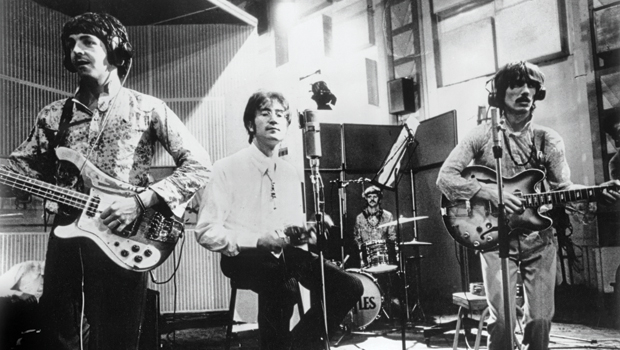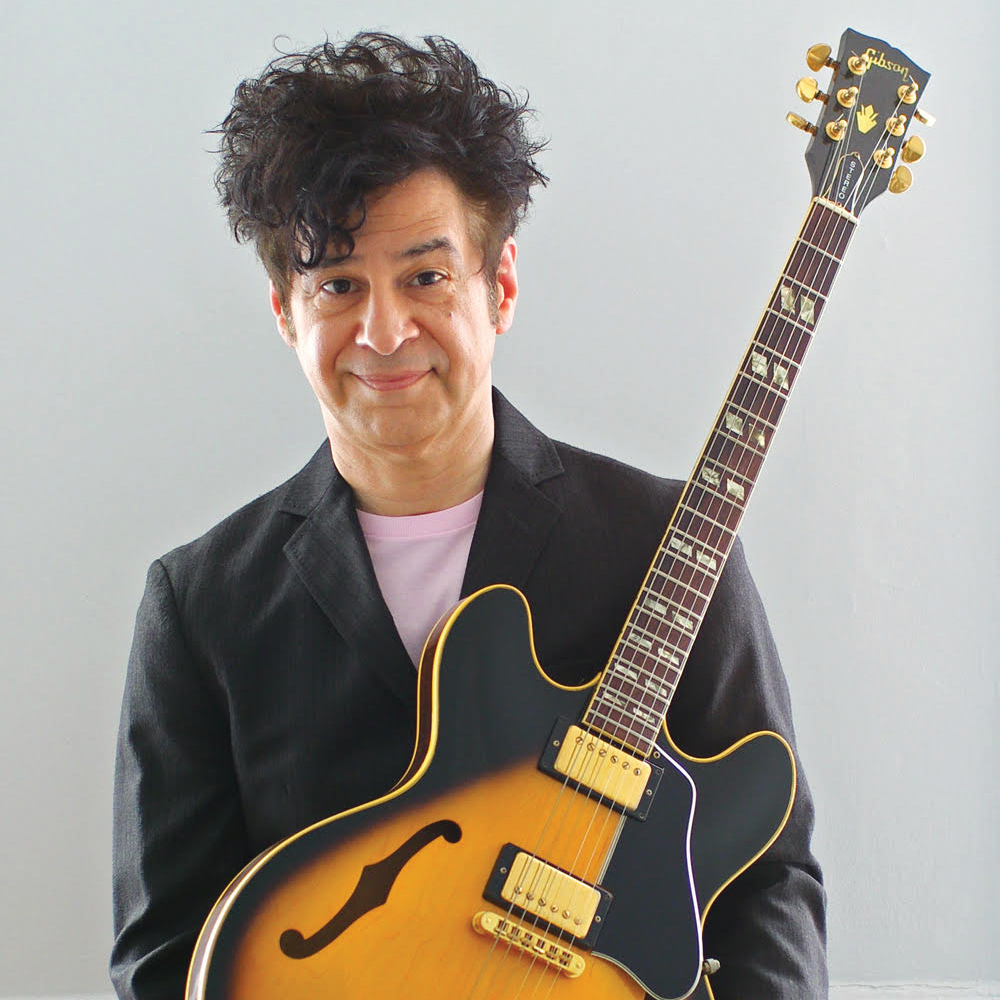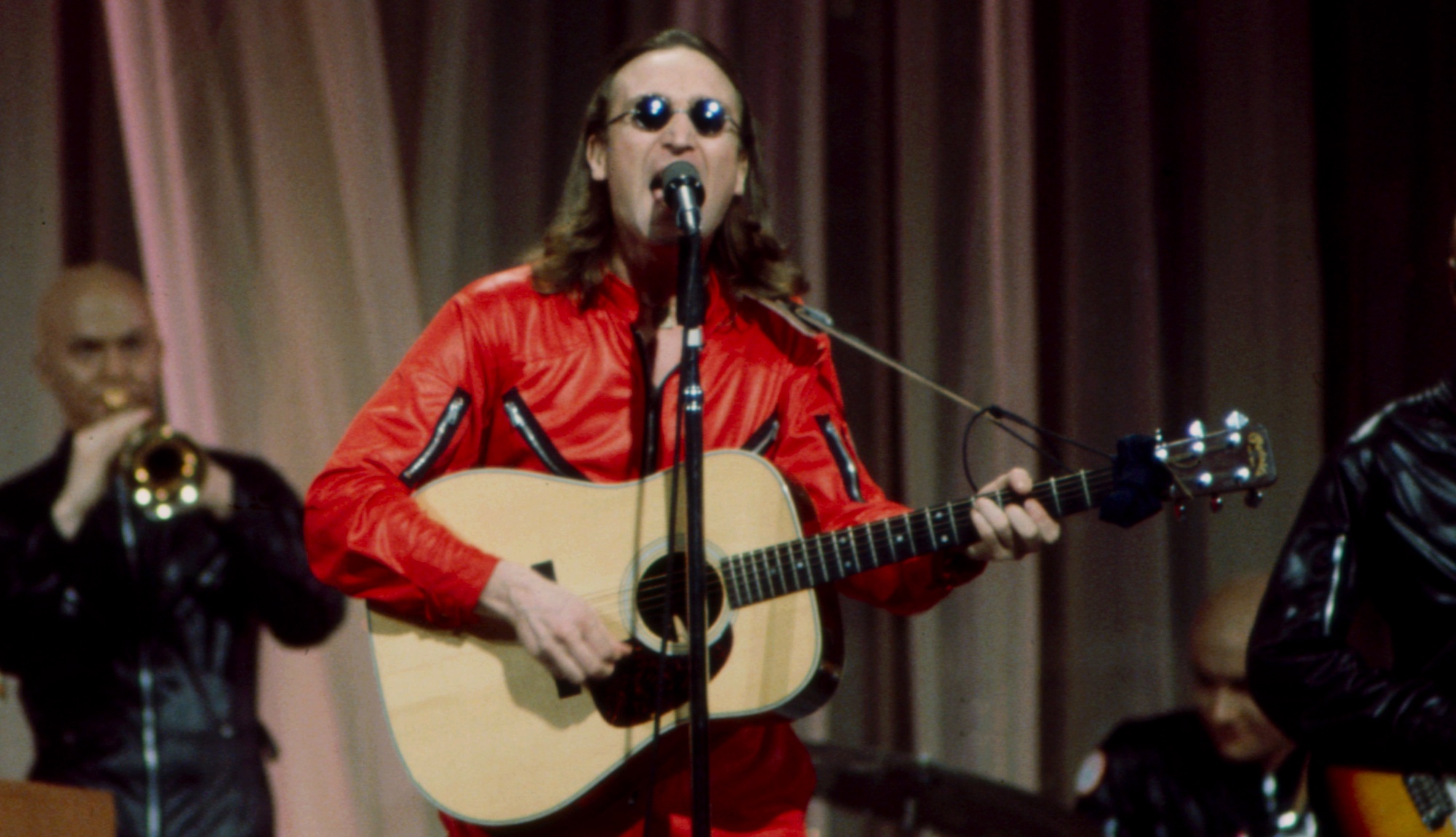Interview: Engineer Eddie Kramer on Recording The Beatles' "All You Need Is Love"
All the latest guitar news, interviews, lessons, reviews, deals and more, direct to your inbox!
You are now subscribed
Your newsletter sign-up was successful

The Beatles made EMI’s Abbey Road Studios a household name after they titled their 1969 album for the facility.
It was there that they recorded nearly all of their songs, beginning with their first release, 1962’s “Love Me Do.”
But as their need for studio time grew in 1967 during the making of Sgt. Pepper’s Lonely Hearts Club Band and Magical Mystery Tour, the Beatles occasionally found Abbey Road’s three studios booked for sessions by other EMI artists. On such occasions, they turned to the growing number of independent recording establishments sprouting up in London at the time, among them Olympic Studios.
Though a relatively new facility in 1967, Olympic had already made a name for itself with clients that included Jimi Hendrix and the Rolling Stones. Now it would add the Beatles to its list of artists when the group came in to record two new John Lennon songs during the making of Magical Mystery Tour: “Baby, You’re a Rich Man,” on May 11, and “All You Need Is Love,” on June 14. Together, the songs would provide the two sides for the Beatles’ hit single of the summer.
Present for both sessions was celebrated producer and engineer Eddie Kramer. Now famous for his production and engineering work with groups like Led Zeppelin and Kiss, Kramer was in 1967 still earning his stripes at Olympic Studios, where he engineered albums such as Their Satanic Majesty’s Request by the Rolling Stones and Are You Experienced by the Jimi Hendrix Experience.
“If you can imagine Olympic Studios in 1967, we were at the cutting edge of virtually every studio in London,” Kramer says. “We were very innovative, and of course we had, I think, the best console in England and possibly the world at the time.”
For a young studio like Olympic, recording the biggest group in the world was the stuff of dreams. When Kramer and his boss, Keith Grant, learned the Beatles had booked Olympic for a May 11 session, they knew it was a golden opportunity. “Keith said to me, ‘Look, we’ve got to really prove it to these guys that we are not only as good as but probably better than EMI Abbey Road.’ And that was the mantra for the night.”
All the latest guitar news, interviews, lessons, reviews, deals and more, direct to your inbox!
The Beatles’ session began at 9 p.m. Present in the control room were producer George Martin, Grant as engineer and Kramer as second engineer. Says Kramer, “It was an honor for me to be on the session and do more than just operate the tape machine, move mics and get them situated. Making sure that everybody was happy—that was the goal.”
For the Beatles, working at Olympic had an unexpected benefit. “Olympic was this marvelous repository of musical instruments that were usually leftover from previous sessions,” Kramer says. “We did a lot of music-to-picture: jingles, movies. More often than not, the stuff from the day’s film work was not picked up till the next day.”
On the night of the “Baby, You’re a Rich Man” sessions, an electronic keyboard known as the Clavioline had been left behind in the studio. A forerunner to the analog synthesizer, the Clavioline was an early attempt to mimic the sound of orchestral instruments electronically. It had previously been used as a lead instrument on tracks like Del Shannon’s 1961 hit “Runaway” and the Tornados’ 1962 smash “Telstar.” In John Lennon’s hands, it would contribute a snaking, Indian-style drone to “Baby, You’re a Rich Man.”
“If you can imagine, we’ve cut the track and it’s coming along really nicely,” Kramer says. “I think John wandered into the studio and said, ‘Oy, what’s this?’ And there on a table is the Clavioline. So we hooked it up and he started fooling around with it. And he says, ‘Okay, that’s what I want.’ So we stuck a mic in front of the amp, and he was done in a couple of takes.”
By the time the session ended at 3 a.m., “Baby, You’re a Rich Man” was recorded and mixed, making it one of the shortest and most productive sessions from this period of the Beatles’ studio work. “We were duty bound to make this thing really explode, and we did,” Kramer says. “It was an amazing track.”
The Beatles were clearly happy, as they returned to Olympic on June 14 to record the basic tracks for “All You Need Is Love,” the song they would perform on the global television special Our World on June 25.
Though the Beatles were scheduled to perform live on the program, George Martin wanted to record a basic track of the song, with instruments and vocals, as insurance in case technical problems, or nerves, sabotaged the live performance. Kramer says, “I got the call: ‘Eddie, the Beatles are coming back. You wanna do it?’ I said, ‘Yeah, lovely.’”
Once again, Martin served as producer for the session; this time, though, Eddie Kramer had been bumped up to the engineer’s seat, with George Chkiantz as second engineer.
“So they come in,” Kramer says, “and John plops down next to me at the producer’s desk and says, [mimicking Lennon’s Liverpudlian drawl] ‘Well, I guess we’ve got to do this song for TV then. And it goes like this: ‘All you need is love…’. And he’s playing the guitar and showing the lads how to do it. And then they all filed out into the studio, except for John, who stayed behind and sat next to me.”
Lennon asked Kramer to provide him with a microphone so that the others could hear him in the studio. “So I hooked up the talkback mic”—the microphone through which personnel in the control room speak with artists in the studio—“and patched it in such a way that it went directly to everybody’s headphones so he could sit in the control room and sing it,” Kramer says. “And so he basically sat next to me for the whole session, singing this song.”
Following overdubs at Abbey Road and additional parts recorded on the day of the Our World performance, “All You Need Is Love” was completed. The song was released as a single on July 7, 1967, with “Baby, You’re a Rich Man” on its flipside. In the U.S., the songs were released as a single and included on the album-length version of Magical Mystery Tour.
For Kramer, the sessions were exceptional moments in a memorable year during which he worked with some of the greatest stars in rock and roll. “They were so disarming and so great in the studio,” he says of the Beatles. “They were very targeted about what they’d come in to achieve. They were wonderful.”
Christopher Scapelliti is editor-in-chief of Guitar Player magazine, the world’s longest-running guitar magazine, founded in 1967. In his extensive career, he has authored in-depth interviews with such guitarists as Pete Townshend, Slash, Billy Corgan, Jack White, Elvis Costello and Todd Rundgren, and audio professionals including Beatles engineers Geoff Emerick and Ken Scott. He is the co-author of Guitar Aficionado: The Collections: The Most Famous, Rare, and Valuable Guitars in the World, a founding editor of Guitar Aficionado magazine, and a former editor with Guitar World, Guitar for the Practicing Musician and Maximum Guitar. Apart from guitars, he maintains a collection of more than 30 vintage analog synthesizers.

